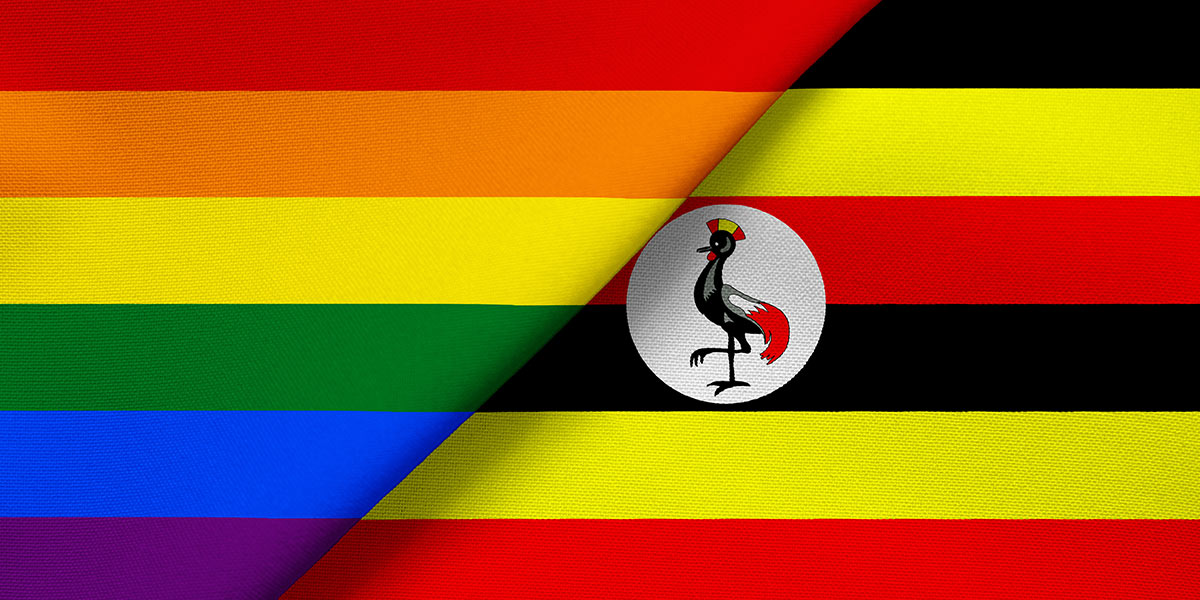World condemns Uganda’s anti-LGBTIQ+ bill

Human rights organisations and governments around the globe have condemned Uganda’s draconian anti-LGBTIQ+ bill which was passed by its parliament on Tuesday.
If signed by President Museveni, the Anti-Homosexuality Bill, 2023 will double down on criminalising homosexuality with life imprisonment. It will impose the death sentence for “aggravated homosexuality” and even young people under the age of 18 who engage in “homosexual acts” could be jailed for three years.
It will also jail anyone who takes part in a same-sex marriage, and anyone who offers accommodation to LGBTIQ+ people. The so-called “promotion of homosexuality” will carry a jail sentence. It’s also been reported that a legal firm could be fined simply for representing an LGBTIQ+ person.
“It will render lesbian, gay and bisexual people in Uganda criminals simply for existing…”
The European Union said it is “deeply concerned” by the bill, pointing out that the criminalisation of homosexuality is contrary to international human rights law.
“According to the African Charter on Human and People’s Rights, ‘every individual shall have the duty to respect and consider his fellow beings without discrimination, and to maintain relations aimed at promoting, safeguarding and reinforcing mutual respect and tolerance’,” noted Nabila Massrali, EU Spokesperson for Foreign Affairs and Security Policy.
US Secretary of State Antony Blinken said the bill will “undermine fundamental human rights of all Ugandans and could reverse gains in the fight against HIV/AIDS.” He urged the Ugandan government “to strongly reconsider the implementation of this legislation”.
The White House National Security Council’s John Kirby told reporters that the US could consider economic consequences if the law goes into effect. “That would be really unfortunate because so much of the economic assistance that we provide Uganda is health assistance,” he said.
Volker Türk, the UN High Commissioner for Human Rights, asserted that “the passing of this discriminatory bill – probably among the worst of its kind in the world – is a deeply troubling development”.
He said that if signed into law by President Museveni, “it will render lesbian, gay and bisexual people in Uganda criminals simply for existing, for being who they are” and “could provide carte blanche for the systematic violation of nearly all of their human rights and serve to incite people against each other.”
#Uganda: UN Human Rights Chief @volker_turk urges President not to sign shocking anti-homosexuality bill. The draconian legislation proposes the death penalty for aggravated homosexuality & life imprisonment for homosexuality, among other severe sentences: https://t.co/6FfE1o3wAG pic.twitter.com/jzXUiV9TBk
— UN Human Rights (@UNHumanRights) March 22, 2023
Türk noted that the bill “confuses consensual and non-consensual relations – the former should never be criminalized, whereas the latter requires evidence-based measures to end sexual violence in all its forms – including against children, no matter the gender or sexual orientation of the perpetrator.”
The adopted new legislation also exposes journalists, medical workers and human rights defenders to lengthy prison terms simply for doing their work, he added.
In a statement, UNAIDS said the legislation would “have extremely damaging consequences for public health, by curtailing the human rights of people living with HIV and some of the most vulnerable people of Uganda to access life-saving services”.
Pan Africa ILGA warned that the bill has the potential to increase violence and harassment against LGBTIQ+ people in Uganda.
“When states criminalise LGBTIQ+ people their freedom of expression, freedom of movement, and the right to development are affected negatively by the law,” said the organisation. “In Uganda LGBTIQ+ people face violence and discrimination for being a sexual minority. Parliament must reasonably make laws that protect them from hate speech, violence, and discrimination.”
Ugandan human rights lawyer Nicholas Opiyo, on behalf of Chapter Four Uganda, stated: “Gender identity and sexual orientation of consenting adults is a private matter, beyond the realms of legislation. Any attempt to proscribe it is a forlorn attempt and an infringement of constitutionally guaranteed rights to privacy and the right to dignity. The Ugandan legislature should not target consenting adults because of whom they love or how they identify.”
Ugandan activist Clare Byarugaba added that “No law or Act of Parliament can legislate away law-abiding LGBTIQ+ citizens.”
South Africa is noticeable in its silence.
Leave a Reply